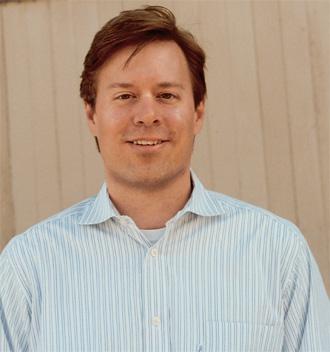 "Imagineers" to the Rescue
"Imagineers" to the Rescue
Can Disney magic make American airports more welcoming to foreign visitors in the wake of 9/11? Robert Gluck '93 thinks that it can--and that it's important.
Robert Gluck's job might best be described as "It's a Small World After All" meets Thomas Friedman's The World Is Flat. Gluck is part of a team at Disney that works with the Department of Homeland Security as well as the State Department to, as he describes it, "make the U.S. more welcoming to visitors." The description may conjure images of happy elves and tiny tilted houses, but in fact the project has serious implications for post-9/11 international business and security.Soon after the 2001 attacks and the consequent airport security crackdowns, Disney began hearing a lot of complaints from its international visitors. Airport lines were too long, processing times sometimes stretched into hours, customs and security officials were brusque and impersonal, and the whole process was confusing.
"The analogy we use is that people perceive the process as being like the ten worst trips to the motor vehicle bureau rolled up into one," says Gluck. "If you go to another country, say any modern airport in Asia, the space is inviting, they have plenty of people set up to tell you where to go. The United States hasn't really caught up to this."
So Disney volunteered its hospitality expertise. Currently, the company is working to create "model airports" at Dulles International Airport outside Washington, D.C., and Bush International Airport in Houston, with the aim of making the federal inspections process more efficient and friendly.
The project is still in the concept phase, but Gluck says changes will involve not just lines and paperwork but also the use and design of space in the terminals. Disney "imagineers"--engineers with expertise in what the company calls "place-making"--have conducted walkthroughs of the airports, "really seeing the point of view of an arriving visitor," says Gluck. "What's it like when you get on the plane? What's it like when you get off the plane? What's the first thing you see? What's the physical space like when you go through customs or deal with the Transportation Security Administration?"
So, what does an airport's appearance have to do with security? "If you buy into the proposition, which we believe to be true, that our image as a country matters, then it's very important," says Gluck. He argues that we have to demonstrate "through our actions that we actually care if people visit, that we're not indifferent to whether the rest of the world comes or not."
Gluck argues: "If we make it a hassle at our borders, people pick up on that, and they get the message, 'They don't care if I come, they don't care about me.' We're denying people the chance to visit our country, meet our people, experience our values, make up their own mind. If we deny them that, then we've denied ourselves an opportunity to improve our image."
Do you have feedback on this page?
